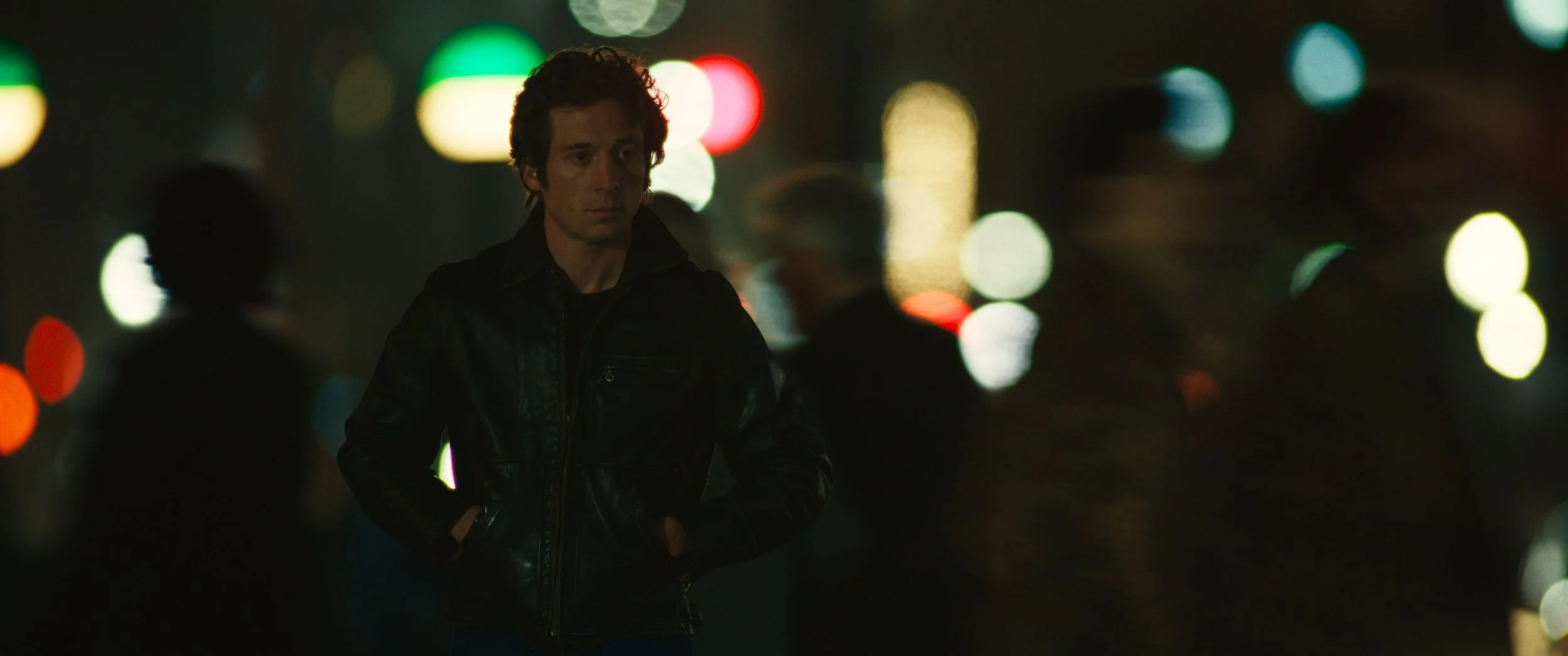Review: 'Springsteen: Deliver Me From Nowhere' forcefully reveals the troubled soul that spurs The Boss's boundless talent
If writer-director Scott Cooper’s “Springsteen: Deliver Me From Nowhere” was your standard-issue musician biographical drama, it would still be a remarkable movie, mostly for the way its star, Jeremy Allen White, channels the blue-collar persona of rock star Bruce Springsteen — and delivers a strong impression of The Boss’ singing voice.
However, just as Springsteen’s fiercely loyal manager, Jon Landau (played by Jeremy Strong), remarks that the songs Bruce is creating in this part of his life are reaching into some dark spaces, Cooper’s movie also explores an aspect of the singer-songwriter’s life that a lesser movie may overlooked: Springsteen’s ongoing battle with depression, and how it fueled his music and added obstacles to his personal life.
The story starts in 1981, at the end of Springsteen’s successful “The River” tour. After months of performing “Hungry Heart” and “Born to Run” to thousands of fans, Springsteen needs a break from the world. He rents out a hose in New Jersey, near his hometown of Freehold, and starts working on some new songs.
Being home stirs up some tough memories, of an 8-year-old Bruce (Matthew Anthony Pellicano Jr.) becoming an inadvertent buffer between his abusive father (Stephen Graham) and his long-suffering mother (Gaby Hoffmann). But home also gives him a chance at a new romance, when he meets Faye (Odessa Young), a single mom who was a couple years behind Bruce in high school. But the songs, and the darkness, intervene.
The songs take two paths, and at one point Springsteen makes a note that they could become a double album. Some of the songs are deeply introspective, mini-narratives of people living on the edge of American society. Others are clearly stadium-worthy rock anthems — though one of the ones we hear early, “Born in the U.S.A.,” has lyrics that prove it’s not the patriotic belter its title would suggest.
(A fun fact mentioned in Cooper’s script, adapted by Warren Zanes’ biography of The Boss, is that the title of “Born in the U.S.A” came from a screenplay Paul Schrader wanted Springsteen to read, both to inspire a song for the soundtrack and perhaps for him to make his acting debut.)
Springsteen recorded his songs on a portable TEAC mini-studio recorder, which created a stripped down four-track cassette tape. Springsteen started out saying he only wanted to make a demo tape, and that the songs would ultimately be recorded in the studio by him and his E Street Band. As he dug in — on songs like “Highway Patrolman,” “Mansion on the Hill” and the ultimate title track, “Nebraska” — he realized that the songs sounded best on the stripped-down demo.
(A personal aside here: I am a Springsteen fan, but I was late to the party, not really getting into his music until the “Born in the U.S.A.” album in 1984. However, my first Springsteen album was 1982’s “Nebraska” — which I bought when my sister signed up for the Columbia House mail-order record club, not knowing she would have to pay full price for records after the eight-for-a-penny introductory deal.)
Strong’s best scenes as Landau showing him talking with his wife (Grace Gummer) about his consternation with Springsteen. And later holding firm against his record label, when Springsteen demanded “Nebraska” to be released without any singles for radio play, without press interviews, and without Springsteen’s face on the cover.
White’s performance starts with impersonation — he nails the onstage Springsteen in all his sweat-soaked glory — and works his way from there. White captures a man wrestling with his past, his guilt over not protecting his mom and not being what Faye needs of him, the burning flame of an artist’s creativity, and the gnawing feeling that neither talent nor fame can cut through the depression that gripped Springsteen since boyhood.
“Springsteen: Deliver Me From Nowhere” succeeds not only as an examination of Springsteen’s songwriting genius, but also as one of the most honest depictions of depression on film. It gets past the cliche of the man who suffers for his art, by showing us that Springsteen’s art was how he channeled his suffering and found refuge from it.
——
‘Springsteen: Deliver Me From Nowhere’
★★★★
Opens Friday, October 24, in theaters everywhere. Rated PG-13 for thematic material, some sexuality, strong language, and smoking. Running time: 119 minutes.
